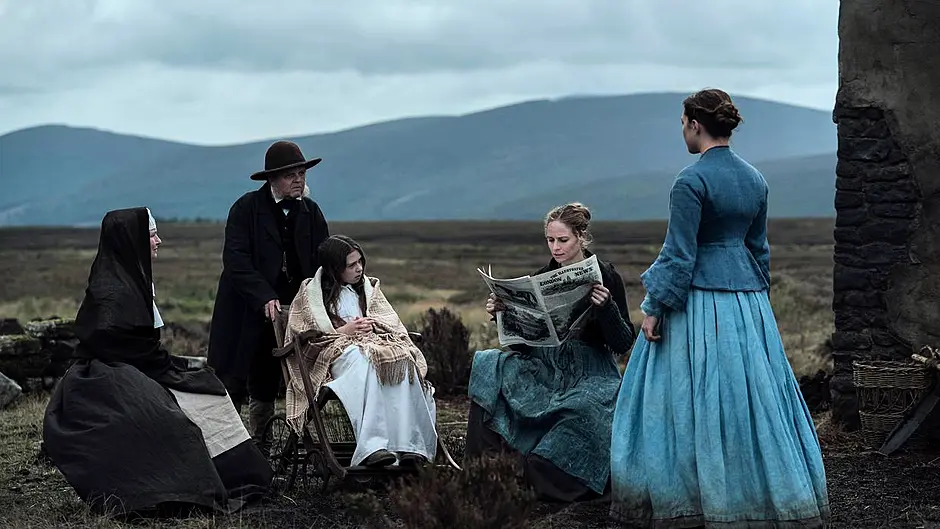YOU would forgive a person for not having the highest of expectations for a film set just after the famine in which an English nurse travels to Ireland to look after a sick child who refuses to eat.
It reads a little on the nose.
However, The Wonder, directed by Sebastián Lelio could very well have been called The Wonderful and nobody could have batted an eye.
Adapted from a novel by Emma Donoghue, author and screenwriter of the acclaimed Room, this is a film which plays with ideas of belief and what to believe in from the very opening shots.
We begin not in 19th century Ireland, but on what looks like a sparse film set. A voiceover introduces the film in a meta opening which will split opinions.
‘Hello. This is the beginning. The beginning of a film called The Wonder.’
It has the potential to get your eyes rolling, but as the camera pans around the room, we turn to see Pugh in character as ‘Lib’ - the English nurse on her way to Ireland to tend to a child.
It’s a brave opening to a film that is confident in its ability to capture your imagination and pull you into a story.
And it sets the tone as the journey the audience takes in those first minutes is reflected by the one that Lib takes throughout the film.
The sick child she is tasked with caring for, Anna, is more than just that. She refuses to eat - and has done so for four months. Impossible, says Lib. Impossible, say the audience.
Anna doesn’t need to eat because she ‘lives on manna, from heaven’.
Back to that voiceover at the beginning: ‘The people you are about to meet - the characters - believe in their stories with complete devotion.’
The rest of the film proves that statement to be more than true, and Anna’s belief, her faith, is stronger than most.
It’s a brilliantly directed film from Oscar-winning Lelio, but the true magic lies in yet another stellar performance from Florence Pugh who is quickly cementing her place in the highest tier of acting.
I used to think that Saoirse Ronan was destined to take Meryl Streep’s crown at the top of that tier, but Pugh will give her steady competition.
Newcomer Kíla Lord Cassidy plays her role with the air of a seasoned performer, which is essential to a film which does rely on how much we believe her character, and how much her character believes in herself. For a thirteen year old to disappear into a role so seamlessly is impressive.
Her performance, along with Pugh’s, carries the central themes and ideas of the film on its back.
For Lib to understand Anna she must first suspend her disbelief, much like the audience have to and are asked to in the beginning.
We suspend our disbelief when watching any film. People are quick to point out inconsistencies.
Poor accents or a hairstyle from the wrong era can be very distracting and ruin your immersion in the story.
Lelio negates all of that by inviting us to believe in the story in the same way his characters do, and if you can manage that you’re bound to enjoy his mysterious tale.







